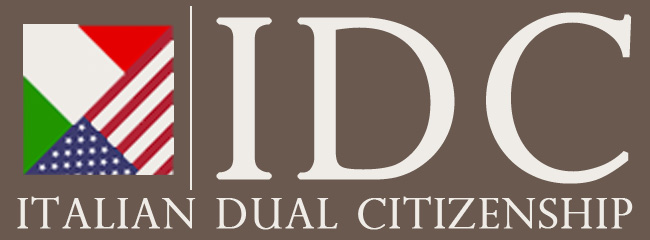
Becoming an Italian citizen comes with many benefits, as Italian institutions are organized quite well. If you have successfully applied to become one, you might be wondering what services you are eligible for and what perks you can get from your new citizenship. If you still have not applied for Italian citizenship, make sure you read our articles on the topic. You will see if you meet all requirements and also familiarize yourself with the legal processes and procedures.
As soon as your application for Italian citizenship is approved, you should register with the Registry of Italian Citizens Residing Abroad (also known as AIRE). Once that is done, you can apply for and get an Italian passport. With such a passport, you are officially considered an Italian citizen. As a result, you can get access to the many services and perks that are available for Italians.
This article will explore two of the main benefits you can enjoy as an Italian citizen: universal low-cost healthcare and affordable but high-quality education. We will examine both topics in-depth and explain how you can make the most of those services as a foreigner who has recently acquired Italian citizenship.
Healthcare in Italy
The Italian healthcare system is considered to be one of the best in the world. When it comes to factors such as overall quality of service, health and life expectancy of the populace, and equity of access, Italian healthcare is miles ahead of the majority of Europe — and the world. In 2000, the WHO ranked it as the 2nd best in the world, behind France. On top of that, life expectancy in Italy is the 4th best among the countries in the OECD. The average lifespan of an Italian was 83.4 years in 2018.
As an Italian citizen, you are entitled to universal healthcare that is quite affordable and professional. While healthcare is often associated with high medical bills in other countries, Italian healthcare coverage is mainly free. Over 77% of the Italian healthcare system is publicly funded, which means that you will rarely pay for any procedure. Sometimes, however, small fees might be charged for surgeries, tests, and special medical attention. Each Italian citizen has access to a doctor (a general practitioner) and a health card (tessera sanitaria), granting them healthcare coverage on the national level.
As we’ve already mentioned, the Italian healthcare system is publicly funded by corporate and personal taxes. As a result, health expenses in Italy are considerably cheaper when compared to the rest of Europe. Coverage is also quite extensive. However, there are certain services and procedures that are not covered and need to be paid out of pocket.
It is worth mentioning that if you are an Italian citizen who wants to live in another EU state, you should apply for a European Health Insurance Card. Issued by the Italian government, this card will grant you coverage of medical expenses in other EU countries.
Higher Education in Italy
Italy is home to a lot of prestigious universities that have an excellent international reputation. What is even better, the costs of attending one are considerably lower compared to the USA, the UK, and even Canada. The average tuition fees at a private university in Italy range from €800 to €2,000 per year. Of course, the price largely depends on the specific course and the university itself. In Italy, you can even attend university for free, depending on your economic situation and academic performance.
The costs of living in Italy are also considered relatively low. Depending on the city and region you are living in, a typical monthly budget ranges from €500 and €900. As you might imagine, the low living costs and tuition fees attract many international students to Italy.
Italian state universities, like the University of Bologna, provide high-quality education at low prices. Additionally, there are excellent private universities you might consider attending — however, keep in mind that they are considerably more expensive. The average tuition fee for a private university in Italy ranges from €10,000 to €15,000 per year. Some examples of prestigious private universities include:
Studying in the European Union
If you are a legal Italian citizen, you can also study in universities located in other members of the European Union. Countries like Germany, France, Spain, Netherlands, Norway, and Finland also have excellent, high-ranking universities with low tuition fees. The European Union student exchange program known as Erasmus allows you to study in a different country as part of your degree. The program is designed exceptionally well and comes with many additional benefits for students.
When it comes to costs, there are more than 40 European universities where Americans, for example, can get a bachelor’s degree for free. Public universities and colleges in Norway, Iceland, Germany, and Finland are totally free for both residents and international students. On top of that, many private schools in Europe don’t charge for tuition and offer courses entirely in English.
Even if you have to pay tuition, the prices are generally much lower than what you would find in the USA. On average, yearly tuition at an American college is $27,020. In comparison, the average annual tuition at a European university is around $2,225. Even the most expensive European universities (like some in the Netherlands) tend to charge less than $9,000 a year.
We cannot neglect the fact that the majority of American students do not pay the full cost of tuition. When you take scholarships and grants into account, the average price of college education in the USA drops to around $4,000 a year. However, it is still nowhere close to what European universities have to offer.
What Are European Universities Like?
While studying in a European university comes with a lot of benefits, keep in mind that the experience could be very different from college life in the USA. If you expect frat parties, sorority houses, and football games, you are in for a letdown. There are also no dining halls to take advantage of for food.
Additionally, odds are that you will have to find your own housing if you decide to study abroad. Generally, room and board cost much less in Europe than in the USA. On average, the price for housing at American colleges is around $10,000. You can expect much lower costs in Europe.
In Conclusion
As you can see, Italian citizenship comes with many benefits and has the potential to open many doors (click here for the full list of benefits). If you are a parent who wants their kids to receive an excellent education from some of the best universities in Europe, moving to Italy as a legal citizen is a sure way to achieve that. Alternatively, the benefits that Italy’s universal low-cost healthcare provides can be reason enough to move.
No matter your plans, the first step you need to take is to acquire Italian citizenship. Feel free to check out our other blogs on the topic. You will find details on how to apply, the documents you will need, and the legal procedures themselves.
For any questions, feel free to contact us at info@italiandualcitizenship.net or directly at (213) 277-8705.





